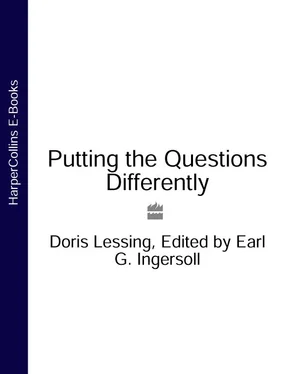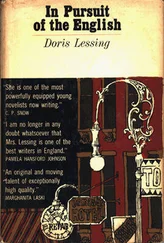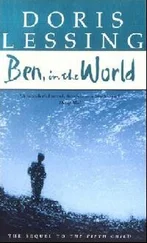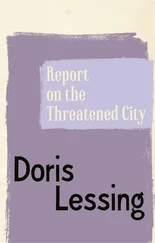1985
The Good Terrorist (Jonathan Cape; New York, Knopf).
1986
Received the W. H. Smith Literary Award.
1987
Received the Palmero Prize and the Premio Internazionale Mondello.
1988
The Fifth Child (Jonathan Cape; New York, Knopf).
1992
African Laughter (New York, HarperCollins). London Observed (HarperCollins); American title The Real Thing: Stories and Sketches (HarperCollins).
Talking as a Person Roy Newquist
Roy Newquist’s interview originally appeared in Counterpoint (Rand McNally, 1964). Copyright © 1964 by Roy Newquist. Reprinted with permission.
Newquist:When did you start writing?
Lessing:I think I’ve always been a writer by temperament. I wrote some bad novels in my teens. I always knew I would be a writer, but not until I was quite old – twenty-six or -seven – did I realize that I’d better stop saying I was going to be one and get down to business. I was working in a lawyer’s office at the time, and I remember walking in and saying to my boss, “I’m giving up my job because I’m going to write a novel.” He very properly laughed, and I indignantly walked home and wrote The Grass Is Singing. I’m oversimplifying; I didn’t write it as simply as that because I was clumsy at writing and it was much too long, but I did learn by writing it. It focused upon white people in Southern Rhodesia, but it could have been about white people anywhere south of the Zambezi, white people who were not up to what is expected of them in a society where there is very heavy competition from the black people coming up.
Then I wrote short stories set in the district I was brought up in, where very isolated white farmers lived immense distances from each other. You see, in this background, people can spread themselves out. People who might be extremely ordinary in a society like England’s, where people are pressed into conformity, can become wild eccentrics in all kinds of ways they wouldn’t dare try elsewhere. This is one of the things I miss, of course, by living in England. I don’t think my memory deceives me, but I think there were more colorful people back in Southern Rhodesia because of the space they had to move in. I gather, from reading American literature, that this is the kind of space you have in America in the Midwest and West.
I left Rhodesia and my second marriage to come to England, bringing a son with me. I had very little money, but I’ve made my living as a professional writer ever since, which is really very hard to do. I had rather hard going, to begin with, which is not a complaint; I gather from my American writer-friends that it is easier to be a writer in England than in America because there is much less pressure put on us. We are not expected to be successful, and it is no sin to be poor.
Newquist:I don’t know how we can compare incomes, but in England it seems that writers make more from reviewing and from broadcasts than they can in the United States.
Lessing:I don’t know. When I meet American writers, the successful ones, they seem to make more on royalties, but then they also seem to spend much more.
I know a writer isn’t supposed to talk about money, but it is very important. It is vital for a writer to know how much he can write to please himself, and how much, or little, he must write to earn money. In England you don’t have to “go commercial” if you don’t mind being poor. It so happens that I’m not poor anymore, thank goodness, because it’s not good for anyone to be. Yet there are disadvantages to living in England. It’s not an exciting place to live; it is not one of the hubs of the world, like America, or Russia, or China. England is a backwater, and it doesn’t make much difference what happens here, or what decisions are made here. But from the point of view of writing, England is a paradise for me.
You see, I was brought up in a country where there is very heavy pressure put on people. In Southern Rhodesia it is not possible to detach yourself from what is going on. This means that you spend all your time in a torment of conscientiousness. In England – I’m not saying it’s a perfect society, far from it – you can get on with your work in peace and quiet when you choose to withdraw. For this I’m very grateful – I imagine there are few countries left in the world where you have this right of privacy.
Newquist:This is what you’re supposed to find in Paris.
Lessing:Paris is too exciting. I find it impossible to work there. I proceed to have a wonderful time and don’t write a damn thing.
Newquist:To work from A Man and Two Women for a bit. The almost surgical job you do in dissecting people, not bodily, but emotionally, has made me wonder if you choose your characters from real life, form composites or projections, or if they are so involved you can’t really trace their origins.
Lessing:I don’t know. Some people I write about come out of my life. Some, well, I don’t know where they come from. They just spring from my own consciousness, perhaps the subconscious, and I’m surprised as they emerge.
This is one of the excitements about writing. Someone says something, drops a phrase, and later you find that phrase turning into a character in a story, or a single, isolated, insignificant incident becomes the germ of a plot.
Newquist:If you were going to give advice to the young writer, what would that advice be?
Lessing:You should write, first of all, to please yourself. You shouldn’t care a damn about anybody else at all. But writing can’t be a way of life; the important part of writing is living. You have to live in such a way that your writing emerges from it. This is hard to describe.
Newquist:What about reading as a background?
Lessing:I’ve known very good writers who’ve never read anything. Of course, this is rare.
Newquist:What about your own reading background?
Lessing:Well, because I had this isolated childhood, I read a great deal. There was no one to talk to, so I read. What did I read? The best – the classics of European and American literature. One of the advantages of not being educated was that I didn’t have to waste time on the secondbest. Slowly, I read these classics. It was my education, and I think it was a very good one.
I could have been educated – formally, that is – but I felt some neurotic rebellion against my parents who wanted me to be brilliant academically. I simply contracted out of the whole thing and educated myself. Of course, there are huge gaps in my education, but I’m nonetheless grateful that it went as it did. One bit of advice I might give the young writer is to get rid of the fear of being thought of as a perfectionist, or to be regarded as pompous. They should strike out for the best, to be the best. God knows, we all fall short of our potential, but if we aim very high we’re likely to be so much better.
Newquist:How do you view today’s literature? What about the recent trend toward introspection?
Lessing:Well, I haven’t been to America, but I’ve met a great many Americans and I think they have a tendency to be much more aware of themselves, and conscious of their society, than we are in Britain (though we’re moving that way). By a coincidence I was thinking this afternoon about a musical like West Side Story, which comes out of a sophisticated society which is very aware of itself. You wouldn’t have found in Britain, at the time that was written, a lyric like “Gee, Officer Krupke.” You have to be very socially self-conscious to write West Side Story.
Читать дальше












